How threats are escalating for Wisconsin's public officials
From local clerks to state Supreme Court justices, elected officials in Wisconsin are being threatened and harassed — in person and online — fueled by tense political rhetoric and conspiracy theories.
By Steven Potter | Here & Now
September 13, 2024
A lot has changed for town clerks like Melissa Kono.
“Until a few years ago, I never thought about my personal safety,” she said. “At one of the places that I train election workers, they had to call the sheriff, because there was an observer who had gotten angry.”
Kono has been administering elections for more than a decade as the clerk for the town of Burnside in west central Wisconsin
“It’s just changed so much from when I started it,” she said. “I never — when I was training election workers — initially thought that I would have to talk to them about de-escalation and how do you get a hold of the sheriff, if you’re getting a threat.”
Kono trains other municipal clerks around the state as an associate professor with UW-Madison Extension Trempealeau County.
“There are outright threats, right? But there are also comments and things that are said that feel threatening,” she said.
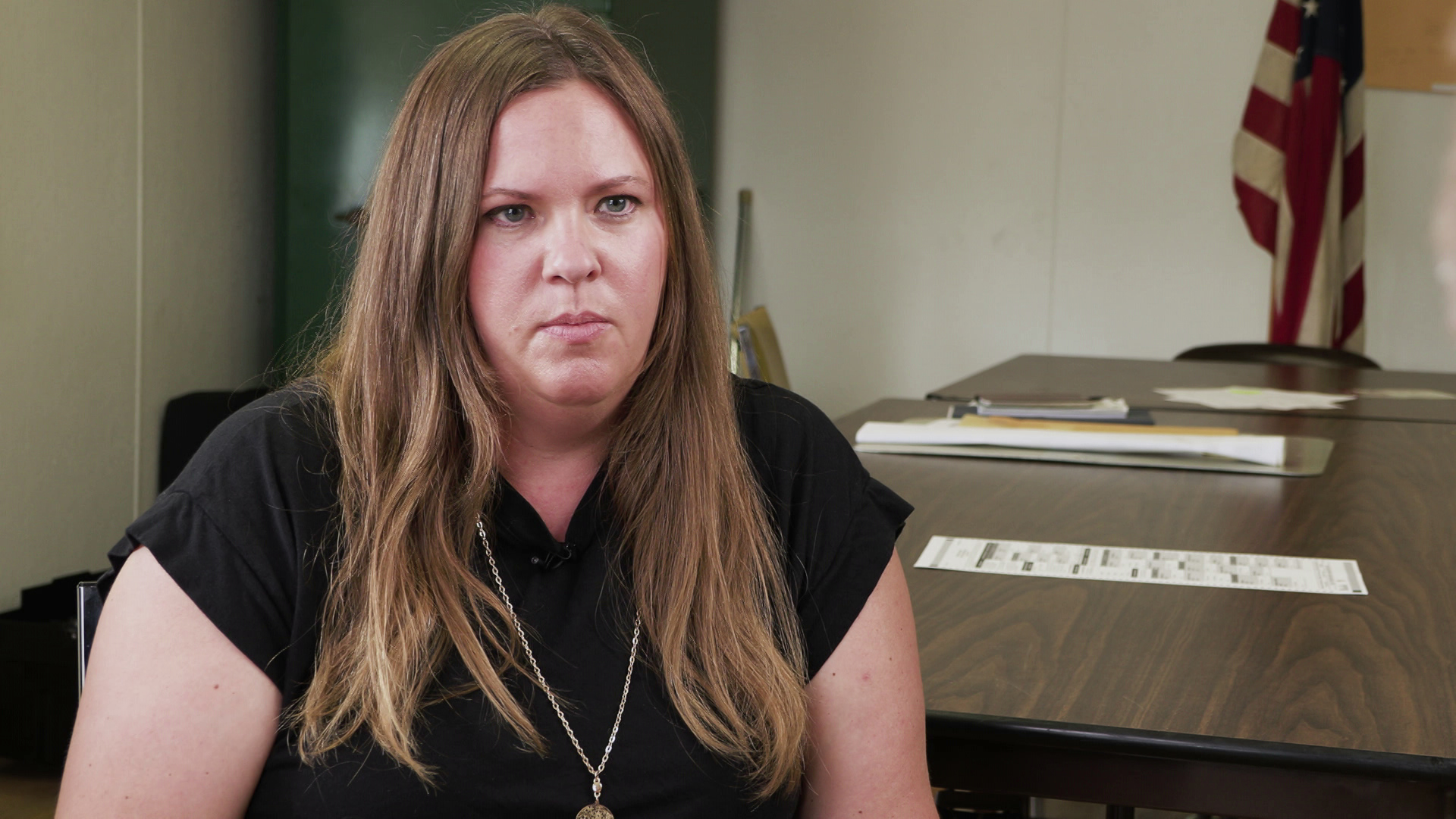
Melissa Kono, clerk for a town of Burnside, discusses how her job administering elections has changed as more elected officials receive threats. “It’s just changed so much from when I started it,” Kono said. “I never — when I was training election workers — initially thought that I would have to talk to them about de-escalation and how do you get a hold of the sheriff, if you’re getting a threat.”(Credit: PBS Wisconsin)
Kono noticed the shift in tone around 2018.
“Some are just wanting to be lighthearted about it. ‘Do I need to state my name and address?’ And others are making these, like, wacky comments about, ‘there are scales in my machine” and ‘I know that you’re changing my vote,’ Kono shared “Things like that that weren’t weren’t there before.”
Is Kono worried that those kinds of comments could increase or evolve into threats?
“Yes, definitely,” said Kono. “Because I think that there’s a reason somebody is saying things like that, coming into the polling place and saying things like that — they’re looking for an argument or a fight.”
Kono has noticed an the escalation of these issues.
“It’s just like this extra level of concern and concern for our safety,” she said. “Until a few years ago, I never thought about my personal safety, because I didn’t get into being the clerk to have to stave off physical threats or even verbal threats about my integrity.”
Kono and other clerks around Wisconsin aren’t alone — it’s a nationwide problem, one that U.S. Attorney General Merrick Garland addressed.
“Election officials, workers and volunteers in communities across the country have been targeted with heinous acts and threats of violence,” Garland said at a Sept. 4 meeting of the U.S. Department of Justice Election Threats Task Force.
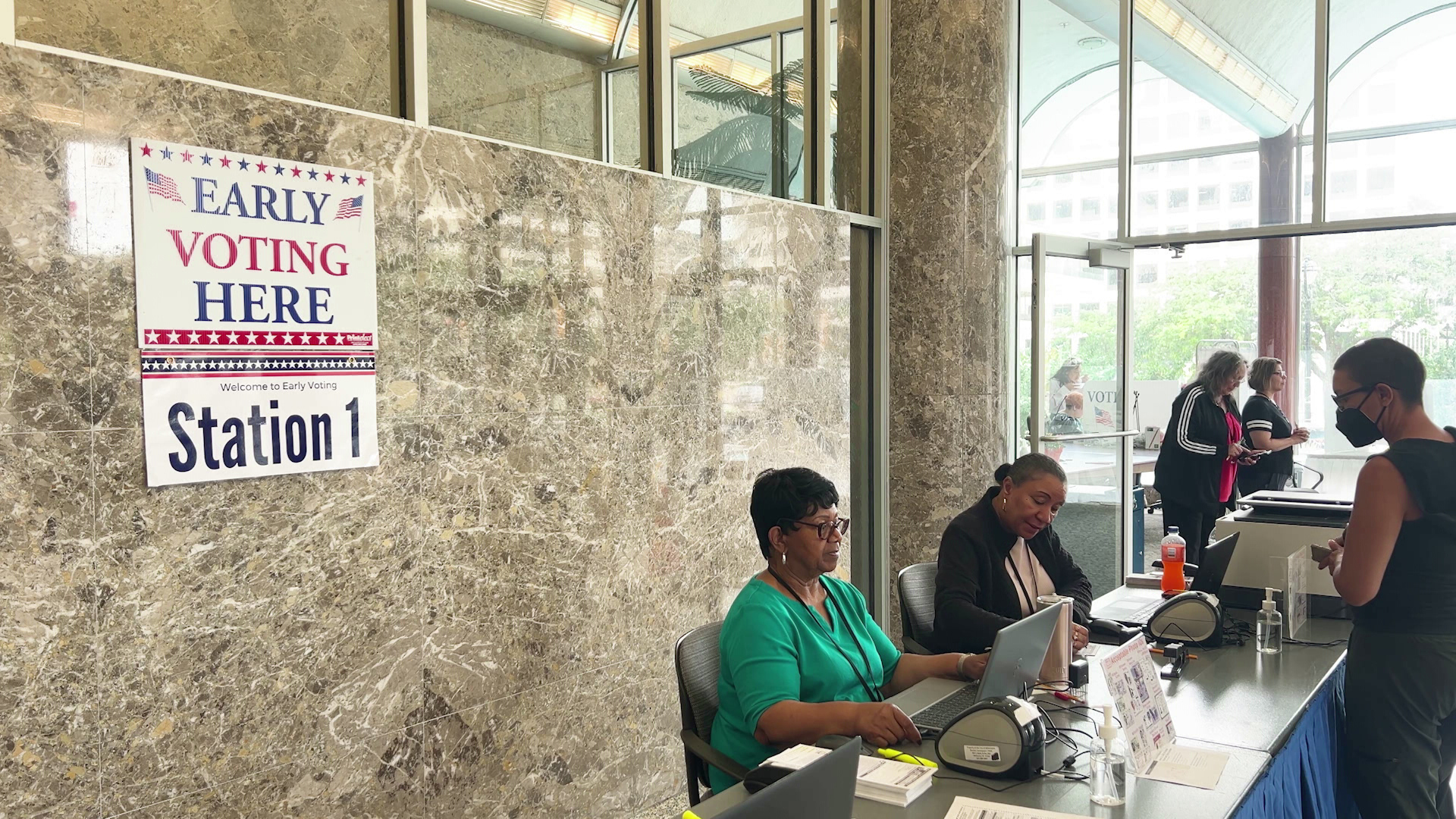
Two election workers assist a voter at an early voting polling place on Aug. 13, 2024 in Milwaukee. More election officials are experiencing threats, harassment or abuse around the United States. (Credit: PBS Wisconsin)
According to an annual report released in May 2023 by the Brennan Center for Justice, some 38% of local election officials experienced threats, harassment, or abuse, and more than half of local election officials around the nation reported being concerned about the safety of their colleagues or staff.
“I just fear it’s getting worse, you know, as we get closer to November,” Kono said. “And we are public officials. I mean, we’re listed publicly. There’s no way around that.”
But election workers aren’t the only ones being threatened. It’s also happening to elected officials — including judges.
Wisconsin Supreme Court Justice Jill Karofsky knows this all too well.
“I personally have had several threats since I have been on the court. The first time I received substantial threats was after the 2020 presidential election,” Karofsky said. “They were misogynistic in nature. They were antisemitic in nature. And that went on for weeks and weeks.”
Karofsky said these threats brought about new feelings of fear.
“Personally, it’s terrifying. I worried for myself. I worried for my kids. It’s not something that you I ever conceived of,” she explained. “I’ve been involved in Wisconsin politics and Wisconsin government since I was eight years old, and my mom ran for city council in the city of Middleton. It’s not something you think about. And when suddenly you are confronted with it, it stops you in your tracks.”
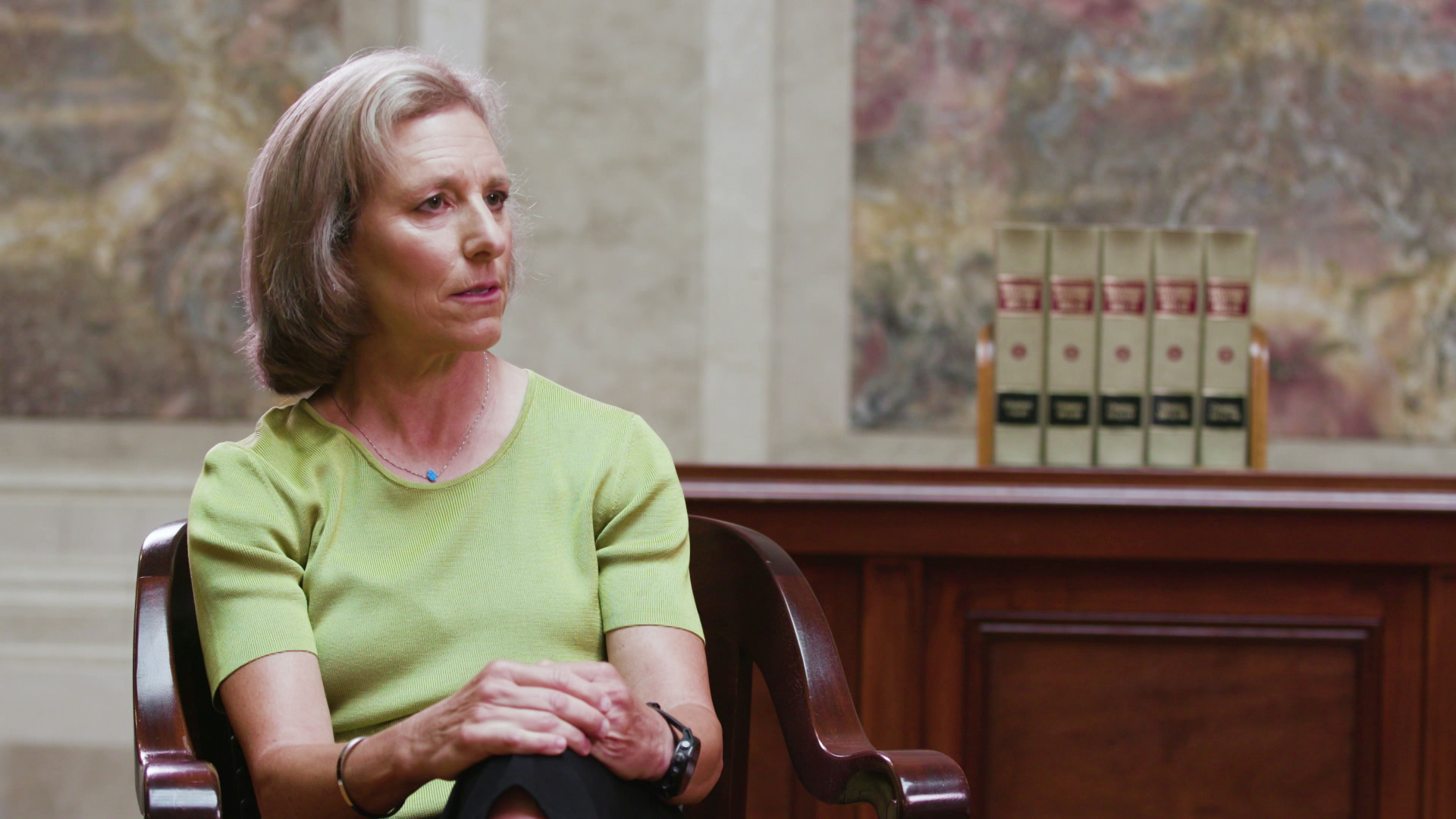
Wisconsin Supreme Court Justice Jill Karofsky discusses experiencing multiple threats in her position. “I personally have had several threats since I have been on the court. The first time I received substantial threats was after the 2020 presidential election,” Karofsky said. “They were misogynistic in nature. They were antisemitic in nature. And that went on for weeks and weeks.” (Credit: PBS Wisconsin)
According to the state Supreme Court Marshal’s Office, there were nearly 150 threats made against Wisconsin judges in 2023.
Karofsky said heated political rhetoric and election fraud conspiracy theories are fueling the fire.
“It used to be that people who were making these threats were extremists on the fringe. That is no longer the case,” she said. “Now we have leaders talking about things like bloodbaths, for God’s sake. So we all need to be vigilant.”
Karofsky also said threats like those she’s received have wide ranging and grand implications on society as a whole.
“They are trying to instill fear in me. So I will make a decision not based on the law. So I will make a decision because I am scared,” she said. “And that is completely undemocratic.”
She added that these threats create concerns not only for the individual but for the local community and country.
“I think it’s a huge danger to our democracy,” she said. “I think the public needs to understand these threats are real. I think we all have an obligation and our democracy to be ever vigilant about these threats.”
Gov. Tony Evers did sign a bipartisan package of bills related to judicial security in March 2024. They covered making a judge’s personal information and security detail private, and made it a crime to protest outside a judge’s home.
Karofsky, however, said simply that more security is needed.
“We need to dedicate more resources to protecting people like me who are the recipients of these threats,” she said.
On the other side of these threats are those who are making them. For that part, criminal prosecution is possible.
Fond du Lac County District Attorney Eric Toney said his office has charged and prosecuted a few threat-related cases over the years.
“We have one case where a legislator was threatened,” he said. “We also see threats to judges at times. We’re handling one in another county as a special prosecution. I’ve had a few death threats made to me during my time as DA.”
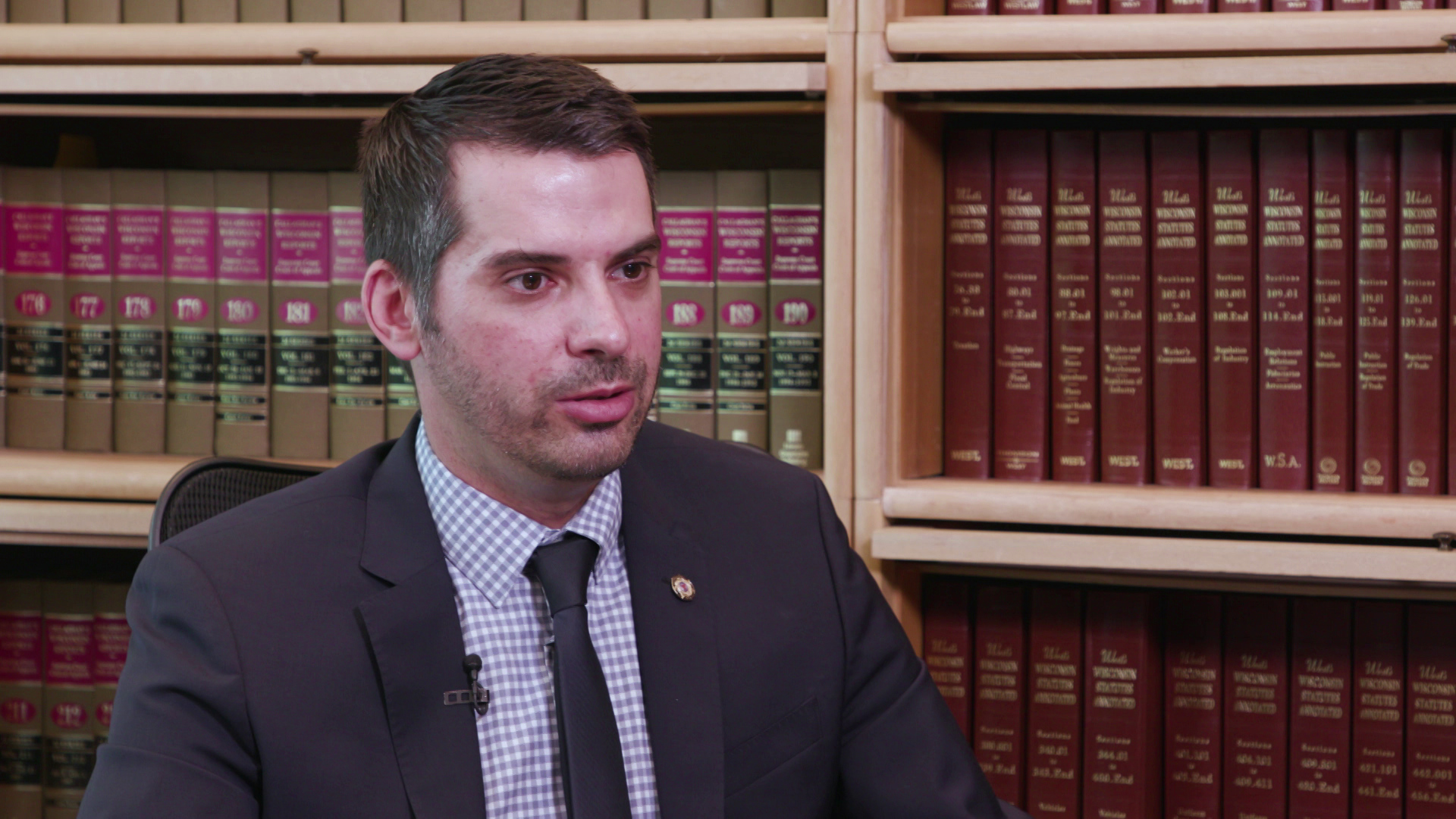
Fond du Lac District Attorney Eric Toney discusses his office charging and prosecuting people who make threats against elected officials. “We have one case where a legislator was threatened,” Toney said. “We also see threats to judges at times. We’re handling one in another county as a special prosecution. I’ve had a few death threats made to me during my time as DA.” (Credit: PBS Wisconsin)
Toney said that just like the range of targets, the different types of ways that threats are delivered also varies.
“It can be a voice message. It can be a phone call. It could be a letter. It could be something in writing. It could be an oral statement to somebody. It can be things over the internet. I think when people can have some anonymity on the internet, we see some very, toxic words that are put out on social media,” he explained.
In a case prosecuted by Toney’s office, a 75-year-old Fond du Lac County man was convicted in July after threatening to kill state lawmakers.
“When someone’s actually threatening the Legislature — that if they pass a law that they will be killed and murdered — that’s a threat to democracy. And so we took that very seriously,” said Toney.
“In this case, he was an elderly man, no firearms and no prior criminal history, over 70. And so ultimately the sentence was only a few days in jail. What I have liked to have seen more? Yes, but this individual now has a felony conviction. He cannot purchase a firearm. And so there is an added sense of security in that respect.”
Threats and security concerns could also discourage some candidates from running for office.
“There are some people that do not want to go through the stress of what a campaign may be, because of how charged and toxic they can become. And it gets certainly ratcheted up the higher the level of office that someone looks at,” Toney said. “Then if they look at the possibility of threats and having security, that’s something that any potential candidate has to consider.”
No matter what level of government, Toney says threats to civil servants will not be tolerated.
“Violence has no place in politics,” he said. “And if that ever occurs, we’re going to aggressively investigate and prosecute that. Threats have no place in politics.”
 Passport
Passport





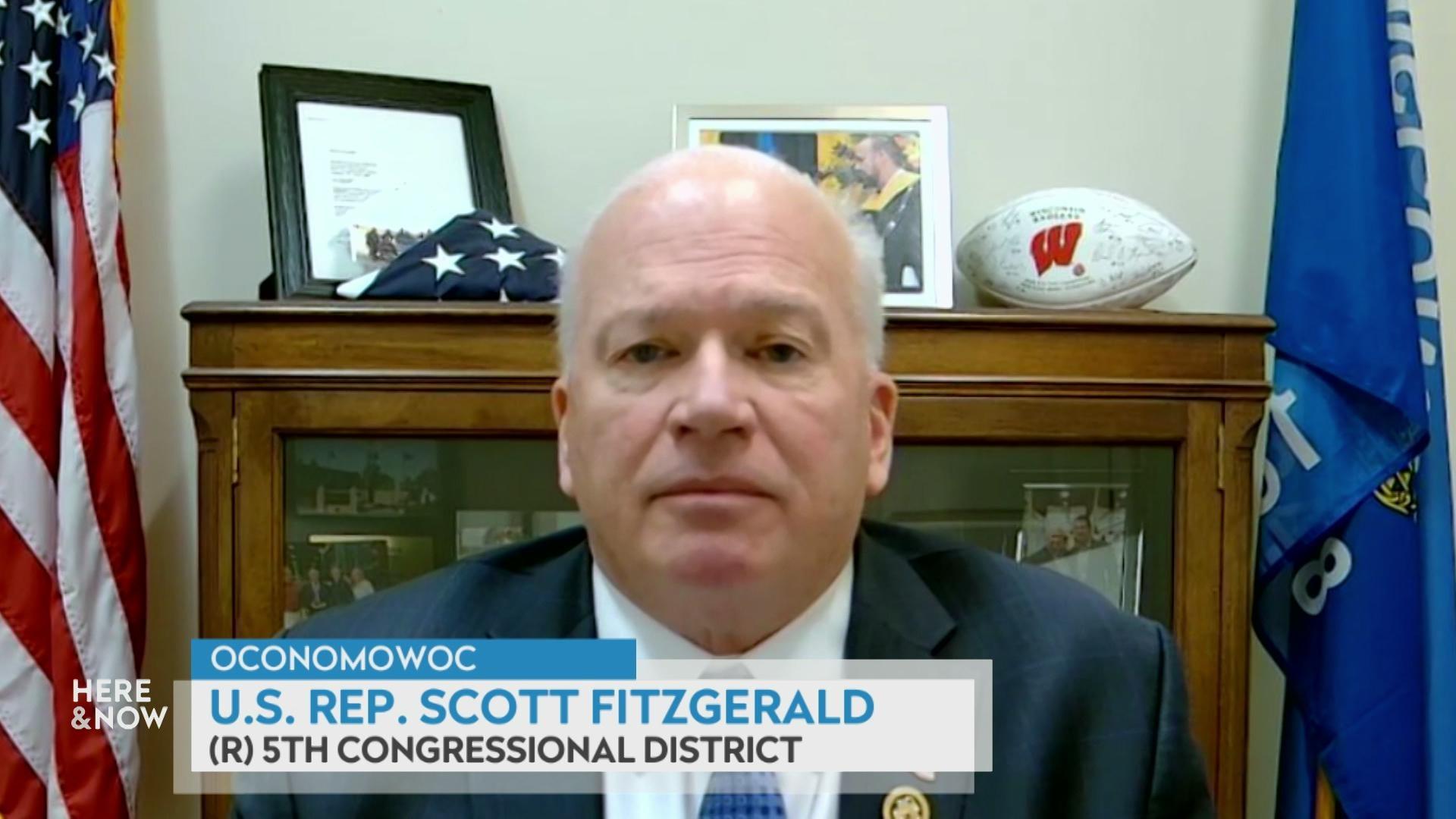
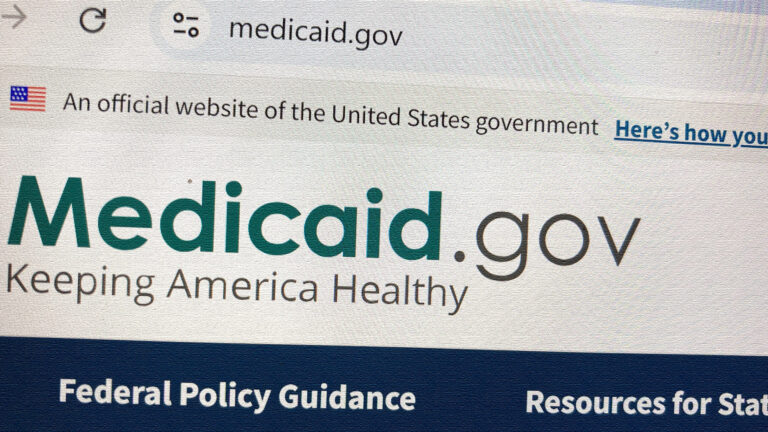
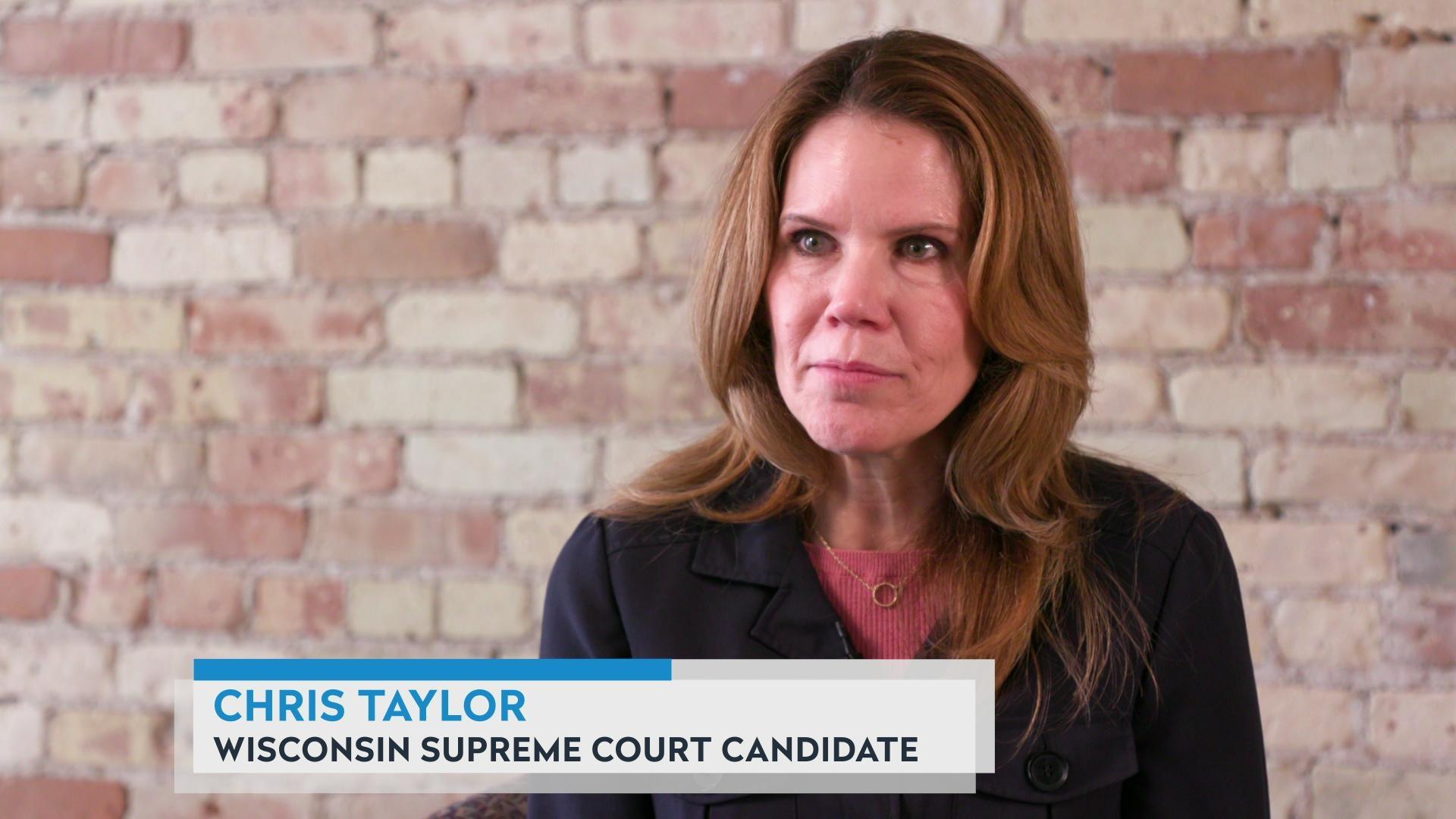



Follow Us